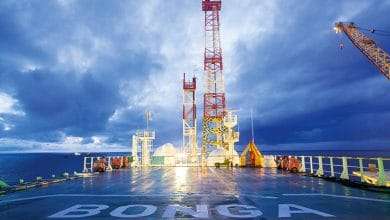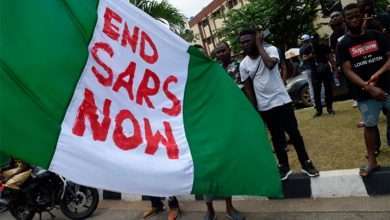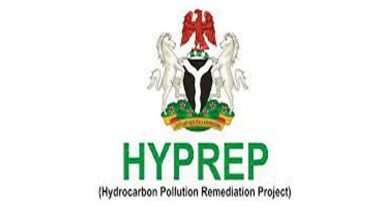Our people continue to die from oil spills, Shell will pay – Vanguard Reports
THAT the people of Ogale and Bille, two rural and fishing communities in Rivers State, are under the weather and standing on their last legs because of ailments set off by the contamination of their water with oil is without a shred of doubt.
That the water in Ogale turns up brown and oozes with sulfur, clearly signposting its toxicity, and many, especially children, fall sick when they bathe with it, is also a naked truth.
That at Bille, a settlement of about 45 islands, bordered by streams, water leaks into people’s homes, and fishes that used to be their major source of income have disappeared from their rivers, is obviously true.
Point of disparity
The villagers point at incessant oil spills from the British oil and gas giant, Shell Petroleum Development Company, SPDC, which has been drilling oil in their environment, as the cause of their woes, but the multinational oil company, which agreed that there was pollution, without a doubt, said it (SPDC) did not cause the said pollution.
This is the problem between the oil communities and oil exploration in many communities of the Niger Delta and, until date, the Nigerian government is, most of the time, more interested in the gains of oil than the tangible predicament of the people.
Even when the United Nations Environment Programme, UNEP, in 2011, called for “emergency action” to clean up the contaminated Niger Delta environments, the clean-up initiated by the Federal Government, which later set up an agency for the purpose, has been more of politics than reality.
Our plight – Ogale, Bille villagers
“As we speak, oil is spilling in my community every day, people are dying,” King Emere Godwin Bebe Okpabi, leader of the Ogale community, screamed.
Chief Bennett Dokubo, a community leader in Bille, asserted that drinking water has caused colossal cholera outbreaks, adding that the only way to stay away from diseases was to buy bottled water from the city which is luxurious.
“If you do not have money, you cannot drink water; it is like we are living in a wasteland while we are living on water,” he said.
In Ogale, the emergency clean water system has not functioned for the past five years. The groundwater and aquifer under the community are defiled, and, therefore, majority of the residents do not have access to clean water.
In Bille, the community’s drinking water is also polluted and the oil has killed most of the fish and shellfish in the rivers, leaving the community’s fishing population without a source of food or income. This has caused a basic shift in the way of life of the people.
Apparently uncomfortable with the disposition of their home government, over 11,300 residents from Ogale, which has a population of approximately 40,000, and 17 local organizations, including churches and schools, in 2015, filed individual claims at the High Court in London against Shell.
Case file
The group claims’ register confirms that 11,317 people and 17 institutions (including churches and schools) from Ogale are seeking compensation for loss of livelihoods and damage against the oil giant. These claims are in addition to the 2,335 Bille individual claims issued at the High Court in 2015. Bille is around 15,000 people.
In addition to the individual claims, there are also two representative actions, one for each community, which seek compensation for damage to communally owned property. This remedy would benefit all members of the communities living with chronic pollution, even where they have not sustained individual losses.
With the existing claims from the Bille community, this brings the total number against the oil company to over 13,650.
Since the case came on track, Shell was able to sidetrack accountability until February 2021 when the Niger Delta communities secured a technical win when the United Kingdom Supreme Court unanimously ruled that there was a “good arguable case.” Essentially, that Shell Plc, the U.K. parent company, was legally responsible for the pollution caused by its Nigerian subsidiary, Shell Petroleum Development Company, and the case would proceed in the English courts.
Shell resistance
However, the following November, Shell filed claims to the effect that the company has no legal responsibility to deal with the consequences of spills. It posited that a legal claim in respect of any specific spill ought to be filed within five years, even if a cleanup never took place.
It said the communities have no legal standing to enforce clean-up against Shell. Also, many of the specific spills in Ogale and Bille took place more than five years before they brought the claim, and, despite the lack of cleanup, the communities are not eligible to seek compensation for those spills.
Shell is not accountable for any spill caused by ‘bunkering’, regardless of whether it could foresee the bunkering and failed to take steps to prevent it.
Shell also claimed that only the Nigerian regulatory authorities have the power to force them to clean up.
“The overwhelming majority of spills related to the Bille and Ogale claims were caused by illegal third-party interference, including pipeline sabotage, illegal bunkering, and other forms of oil theft,” said Tara Lemay, a Shell spokesperson told a media outfit.
“Irrespective of the cause, SPDC has and will continue to clean up and remediate areas affected by spills from its facilities or pipeline network,” he added.
Twelve years after the UNEP Report, the communities, outrageously, remain polluted. No clean up has taken place and the residents still drink from contaminated wells.
Step forward
Lately, the legal case against Shell by the communities took a considerable stride ahead with the filing of the Ogale group claim register at the High Court in London.
Now that they have filed the group register in court, the next stage in the case is for a case management hearing, this year, ahead of the full trial, which is likely to occur the following year.
Claimants’ case against Shell – Leigh Day
The United Kingdom law firm, Leigh Day, handling the case for the claimants, in a legal brief, said: “The claimants are clear that these claims represent the only viable avenue for residents of Ogale and Bille to hold Shell to account for the devastating damage to their environments and lives.
“Access to any sort of timely legal remedy through the Nigerian courts is practically impossible for impoverished communities, hence the need to bring the case in the UK against Shell’s parent company, Shell Plc. 10.
“These legal claims form part of a wider movement to ensure that multinational corporations are held to account according to the minimum standards by which they would operate in the Global North. This is particularly true of companies like Shell who are seeking to ‘exit’ countries such as Nigeria, from which they have derived vast profits over many decades but are leaving behind an environmental disaster for which they appear to claim they are under no obligation to address or remedy.
“At a time when the world is focused on ‘just transition’ from fossil fuels, and the burden of climate change is falling disproportionately on developing countries, such an approach must be exposed.
“The claimants of each community (Ogale and Bille) are bringing separate claims (known as the ‘Ogale Individual Claims’ and the ‘Bille Individual Claims’ respectively) that seek compensation for individual loss of livelihoods sustained due to the ongoing pollution, corruption of clean water sources, and devastating impacts to public health.
“In the Bille case, 2,335 individuals have brought a claim for loss of livelihoods and compensation. In the Ogale case, 11,317 individuals and 17 institutions (including churches and schools) have brought a claim for loss of livelihoods and compensation.
“In addition, both communities are pursuing representative actions against Shell, to secure the clean-up and remediation of Ogale and Bille (the ‘Ogale Community Claim’ and the ‘Bille Community Claim’).
“Compensation for damage to communally owned property is also sought under these community claims. This remedy would benefit all inhabitants living with chronic pollution, even where they have not sustained individual losses.
“A similar claim for clean up was brought in the Bodo case, which has resulted in the largest and most effective clean-up operation of a Niger Delta community that Shell Nigeria has ever undertaken.
“All four cases have been joined and are being case managed together, though there are some differences between the Bille and Ogale claims
“The claimants have brought claims against Shell Plc, the UK parent company, and the Shell Petroleum Development Company of Nigeria (SPDC). The claims state that Shell Plc and/or SPDC was aware of systemic oil spills from their pipelines occurring for many years, but failed to take adequate steps to prevent these oil spills from occurring or to clean them up when they did.
“The legal claims against Shell Plc are based on the tort of negligence and the principle of parent company liability, as well as the Nigerian Constitution and the African Charter. The claimants argue that Shell plc owes a duty of care to both communities because of the degree of involvement it had in SPDC’s operations.
“The Supreme Court has found that ‘there is a good arguable case’ that Shell plc is legally responsible for pollution caused by its Nigerian subsidiary”.
• Aljazeera contributed to report




